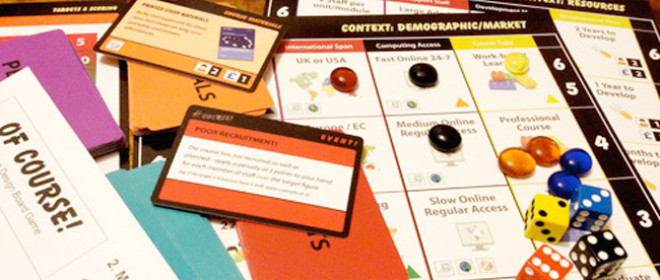
Playing games at school is as old as schools. Get two kids get together and some kind of game will emerge. Images of playing children from shows like Little House on the Prairie are easy to conjure, but adults playing games in a classroom? Do games work as a teaching strategy? Are games brain-friendly? Alex Moseley (2013) quoted an adult, “Playing what was in effect a giant game was inappropriate in an academic environment”
I’ve been to numerous corporate training events in a variety of venues over the years and have felt the internal inertia or resistance whenever a presenter would announce, “Okay – let’s do a role play” or even “find two or three people and form a group.” Just yesterday at a conference with adjunct faculty, the presenter directed us to make groups of three and get ready for a couple of “ice breakers.” I felt my own internal resistance but also looked around and saw a collective grimace or raised eyebrows on several faces. “Oh no, here we go again.”
But I have also watched adults having a glorious time playing games in educational settings and in corporate settings. I’ve heard the buzz of talking, gales of laughter and even whoops of competition. The heightened energy in the room is palpable. Adults do like to play games! I think games are brain-friendly. We are genetically programmed for fight-or-flight response. Games give our brains a reason to fight. Games stimulate social connections and stimulate the frontal lobe to solve problems. So how can games work with adults?
Mosley (2013) explained that “game design principles are core to a good game no matter which context, so in some senses games for learning with adults follow the same design and development cycle as any other. The difference is one of attitude…” Mosley also explains that “games must feel worthwhile and relevant to the learner.” Well-designed, worthwhile and relevant, critical design features for games.
How a game is introduced and explained is also critical. From a training seminar with Rich Wilson years ago, I picked up helpful guidelines for the using games with adults that work well. Wilson implored us to avoid telling adults what the game was going to be (a role-play or an ice-breaker). Instead, avoid the trigger words and just do it. Wilson also instructed us to explain the game clearly and simply and require all the learners to wait in order to begin at once.
Last year, I had the privilege of teaching a course, “English Words for Medical Terms” in Vietnam. One group we taught was veterinary students. I had a matching game for them to play is small groups and was pleased to watch them complete the game, and then replay it spontaneously. The students were laughing and shouting, saying the English words over and over, correcting each other and having a grand time. The energy in the room was sky-high, their eyes were bright, and I think their brains were grateful for the stimulation.
Mosley, A. (2013). Games for adult learners: a frivolous concept? Higher Education. http://edugameshub.com/games-adult-learners-frivolous-concept/
TED Talks: Five Good TED Talks on games at Upside Learning
http://www.upsidelearning.com/blog/index.php/2010/04/23/5-good-ted-talks-on-games/

